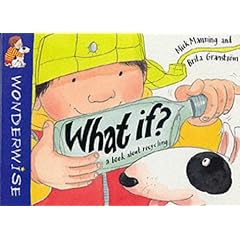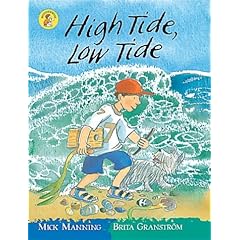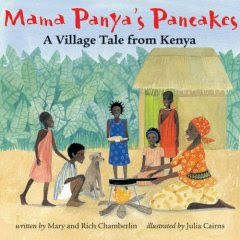Wednesday, 20 January 2010
NASA UK Snow map and Climate Change
I've just read this blog post from Robin Butler on the Ashden Directory Blog site. It focuses on all of the interest generated around climate change by the recent publication of the NASA snowmap. It's well worth reading. You can access it on the Ashden Directory >>>>
The Ashden Directory is a new find for me and well worth reading.
Friday, 15 January 2010
My Place, Your Place, Our Place
My Place, Your Place, Our Place
Sustainability and community cohesion are ideas at the forefront of educational agendas but what do they mean in practice for learners in primary education? This family of courses explores the relationships between identity and place by drawing on some key geographical processes and understanding.
Find out more >>>>
Wednesday, 6 January 2010
NEW Website: Global Gardens
Saturday, 12 December 2009
The Story Of Cap & Trade
The Story of Cap & Trade from Story of Stuff Project on Vimeo.
What do you think?
Friday, 11 December 2009
`Copenhagen Climate Conference' - at what age should we start to focus on `climate change' with primary aged children?

Climate Change is very much at the forefront of everyones mind at the moment and we've been thinking about what we have available on the GA website to support primary teachers. Not much is the simple answer. While searching the web I came across a very interesting article by Leo Hickman in the Guardian. Why don't we stop hurting the planet?
Leo has just written a new book called, `Will Jellyfish Rule the World?'
As I find suitable website I'm starting to list them on Twitter - see bottom left column of this website or on Twitter @primarygeog
Tuesday, 27 October 2009
Flip Flotsom - exploring the idea of sustainability through the journey of the humble flip-flop in Kenya

I've just come across this poem and video on YouTube (though you may know it as it's been around since at least 2003). I think both are wonderful - the poem and video are lyrical explorations of what happens to a `flip-flop' from the time it is manufactured to the time it is recycled.
Flip Flotsam
This is the beach
where the flip flops come
at the end of their
flip flop trip.
And where does a
flip flop trip begin?
the floor of a flip flop factory;
on the shelf of a flip flop shop;
or the foot of a flip flop fan?
See Elspeth Murrays website for a full version of the poem (and lots more too!) She sounds really great and has done lots of work in schools.
You will find the video on You Tube
This video is also available from Jouneyman Pictures who have lots of documentary videos available to support geography though not all are suitable for primary children.)
Saturday, 25 July 2009
Starting with geography: using picture books to plan an integrated topic in the primary school

If you are looking for alternative starting points for planning an integrated topic in the primary school – then a picture book could provide a very accessible way in. I think this particular book could provide a starting point for Year 2’s (6-7 year olds) to Year 4 or maybe even Year 5 (8 – 10 year olds).
First the book that you choose has to have a strong geographical theme running through it. My chosen book, `What if …’ is about recycling so it fits very nicely into the theme of ESD (Environment & Sustainable Development). This is a theme that is shared equally strongly with science and also with citizenship. So we have a very good basis for a geography/science/citizenship integrated topic.
Now I realise that all over the land in the world of the English primary school the words `we’re delivering a skills based curriculum’ are currently `hot’ but I want to argue here for thinking about concepts. We need to start with the `big ideas’ of a subject.
I want to start by explaining how to do this where geography is the lead subject. First I developed a planning grid of empty boxes with headings that focus on both geography’s `big ideas’. In terms of `big ideas’ I want to highlight PLACE, SPACE & SCALE as being the most important for primary geography though you’ll notice in my planning grid that I’ve linked together `place & scale’ and then `location & space’. On the exemplar sheet I’ve prioritised `environmental interaction (including ESD)’ as this is essentially what the book is about. Though I’ve also included `interdependence & connectedness’ – two very important ideas that were largely neglected in the current English National Curriculum programmes of study for geography, and then `changing human & physical processes’ and `cultural understanding & diversity’. On the blank planning sheet I have left the boxes under `curriculum links’ blank. Though as I read through the text of `What if …’ I realised that the book also embraced art, science and citizenship – so I added these headings onto my sheet.
So how did I use the planning sheet?
First I read through the book and listed all of the ideas that the book suggested to me. These are in black type.
Next I looked at these ideas and though about `activities’ and the kind of ideas that might be developed into activities and I listed these in blue type.
I haven’t done the next stage – but what I would do next is to choose three or four of these ideas/activities and develop them into an outline for a medium term plan.
If anyone uses this idea and adapts it for use with their own class I’d love to hear how it goes. Please add a comment or get in touch by e-mail. You’ll find contact details on the Geographical Association website.
Friday, 24 July 2009
Starting from Picture Books – The Sea and Coast

Approaching curriculum planning with GEOGRAPHY and CREATIVITY in mind:
- Use the books to provide you with the outline plan for a short or medium term unit. Three books that could provide a useful starting point for a KS1 & lower KS2 link ENVIRONMENT & SUSTAINABILITY through GEOGRAPHY & SCIENCE.
- One World, Michael Foreman 0-09-983480-4
- High Tide, Low Tide, Mick Manning & Brita Grandström 0-7496-4181-9
- The Rockpool, David Bellamy & Jill Dow 0-7112-1386-0
- Use the book in conjunction with an outline planning frame to identify key learning concepts that will be the focus of work with your class. An exemplar frame has been provided for `What if? (Mick Manning & Brita Grandström)
- Decide which are the two/ three most important geographical concepts listed on the frame. These will form the basis of the children’s learning so highlight them. Do the same for other subjects. The time that you are able to devote to this unit/project will influence your choice.
- Identify additional resources that will help you provide more in-depth learning in relation to identified concepts.
- Plan activities to support learning.
WHOLE SCHOOL PLANNING
To ensure whole school continuity and progression you will need to identify where key geographical concepts will be taught by each class in school and map this onto your whole school plan.
Wednesday, 23 January 2008
Books & websites for developing an understanding of Global Citizenship and Education for Sustainable Development
 It was great to meet so many enthusiastic teachers at yesterday's Quality Geography Conference in London.
It was great to meet so many enthusiastic teachers at yesterday's Quality Geography Conference in London.One of the things we discussed was using books as starting points for learning in geography and I offered to make a book and website list available through this site. Click on the link below (green text) to access a WORD document which lists a selection of books and websites on the theme:
Global Citizenship and Education for Sustainable Development







